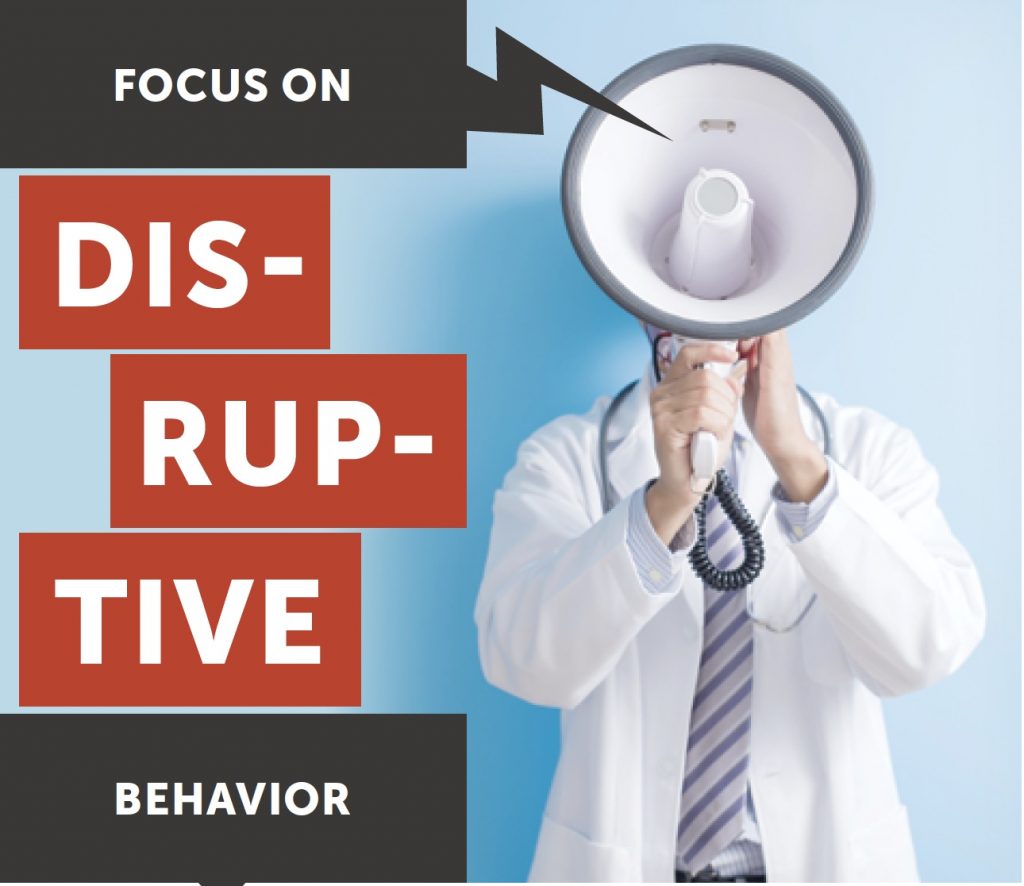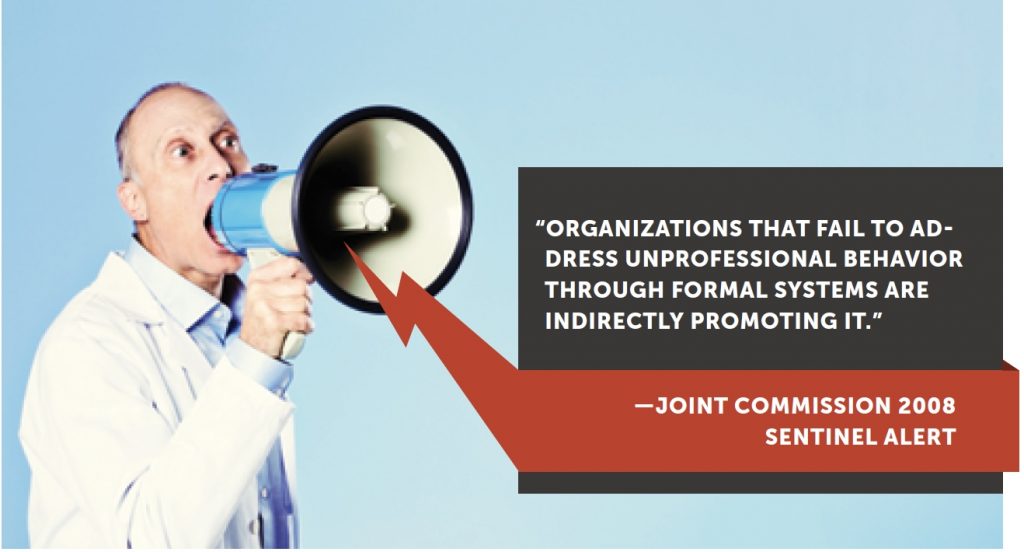Focus on Disruptive Behavior
Focus on Disruptive Behavior
Disruptive behaviors lead to potentially preventable adverse events, errors, compromises in safety and quality, and patient mortality.

An attending physician insults an ICU nurse repeatedly during an intubation, at one point telling her to “give the damn meds already.” A group of nurses berate a pharmacist for delaying patient therapy when she tries to explain a safety concern about a medication order.
Situations like these are commonplace in hospitals, generally dismissed with a roll of the eyes or a shrug of the shoulders. Rather than complain, most health care professionals assume it’s just the way things are. But in professional organizations around the country, there is growing awareness that such complacency can have serious consequences. Humiliated and intimidated, the ICU nurse administered medications in the wrong sequence—a paralytic before sedation—rather than push for the clarification she needed. In the second situation, the pharmacist gave in and dispensed what she suspected was the wrong dose (she was correct).
These are not hypotheticals, but actual instances of the potentially devastating impact disruptive behavior can have on patient care. A 2008 study published in The Joint Commission Journal on Quality and Patient Safety, found “that disruptive behaviors lead to potentially preventable adverse events, errors, compromises in safety and quality, and patient mortality.” It doesn’t matter who commits the abusive acts, (both physicians and nurses are involved, according to the study), the effects on patient care are equally harmful. Those targeted, and many who witness the disruptive behavior, end up distraught and distracted. They have trouble concentrating, sharing critical information and working together as a team—all crucially important to patient safety.
Alarmed by these findings. The Joint Commission published a “Sentinel Event Alert” in 2008. Such alerts are issued when a patent safety event results in death, severe temporary or permanent harm, or the need for life-saving intervention. “Such events are called ‘sentinel,’ explains the Joint Commission, “because they signal the need for immediate investigation and response.” In addition to the direct impact on patient safety, the Alert notes that Intimidating and disruptive behaviors can also “contribute to poor patient satisfaction… increase the cost of care, and cause qualified clinicians, administrators and managers to seek new positions in more professional environments.”

Not much has changed since 2008. The problem remains a serious concern of the Joint Commission, which updated its Alert in 2016 and a year later published a companion alert focusing on the role leaders must play in eradicating disruptive behavior.
PBI faculty member Catherine Caldicott, MD, is an internist with over 15 years’ experience in professional ethics education, remediation, coaching, and research. She points out that it often takes time for disruptive behavior to surface. When the situation eventually becomes intolerable and someone does finally complain, Human Resources typically takes a series of steps dictated by policy. When the problem persists, Caldicott explains, HR often turns to outside experts for help, including Physician Health Programs, anger management training and/or remedial education.
Over the years, we at PBI have worked with a number of disruptive doctors, nurses and others. In this issue, we share what we have learned, along with the latest research, as we tackle the key questions. What exactly is disruptive behavior? How widespread is it? What causes it? And what can be done to prevent it?
ADDITIONAL ARTICLES
How Bad Is It Really?
Who Is Disruptive and Why?
What Can Be Done?
